Dom Casmurro - Did Capitu betray Bentinho or not?
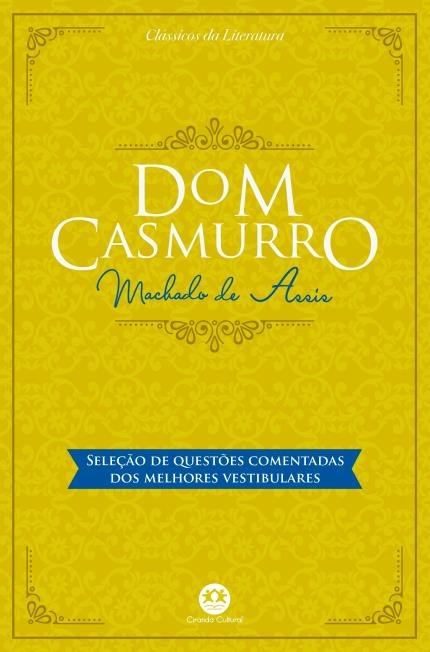
Talking about this classic Brazilian literature, written as early as 1899, which has been compulsory reading in schools and entrance exams for decades, without falling into sameness is a great challenge. I don't intend to do that in this text. The idea here is to the way I interpreted this controversial and ambiguous story by Machado de Assis, without labels or de Assis, without labels and with a more refined look at this story! Come with me!
The narrative is told in first person by Bento Santiago, in retrospect. He is now older, decides to write this story to tie up some loose ends in his life. loose.
One passage that struck me on the very first page of the book, is this character telling us telling us why he got the nickname Dom Casmurro. According to him, this nickname was given to him by his neighbors and refers to the way he lives, in a quiet and calm way. quiet. He then asks us not to go to the dictionary to check, but to believe him. dictionary to check, that we should believe that this was indeed the meaning. Machado de Assis does this intentionally because he knows that many readers would look it up in the dictionary. That's exactly what he wants: to put in the reader's head reader's mind, right away, a doubt about the story Bentinho is telling us. telling us.
The meaning of Casmurro can also mean stubborn, self-centered and headstrong. And I confess that, among other things other things, during the narrative I thought this protagonist was just like that. like that.
From the outset, Bentinho's Bentinho tells us that people thought Capitu was a risk to him, mainly because she kept him from his mother's plans to take him to the seminary to become a priest. to become a priest. Phrases like "The little girl is brainless" and "the eyes of an oblique gypsy gypsy eyes", when she was only 14 years old, already make us suspicious of this discourse. with this discourse. It clearly shows us that the discourse was laden with judgment and aims to lead us to a certain opinion. opinion. I've even heard many of these opinions from readers. But they didn't convinced me.
Bentinho and the "hungover eyes", as Capitu was also known, realized that they were in love when he was 15 and she had just turned 14. From that moment on, the began to create strategies to get Gloria, Bentinho's mother, out of their heads. Bentinho's mother, that he needed to become a priest. Capitu threw herself body and soul and remained determined, even after Bentinho went to the seminary. seminary.
It was at the seminary that Bentinho who would become his great friend and, later, his greatest nightmare, Escobar. nightmare, Escobar. As this plot unfolds, Bentinho, with the help of his seminarist friend friend (who also didn't want to be a priest - and wasn't) managed to convince his mother that the promise could be paid in another way and that Bentinho wouldn't need to become a priest to do it. not need to become a priest to do so. He went to college and graduated lawyer in São Paulo. Here's an addendum: throughout the narrative I perceived a tone of judgment on Capitu. It seemed that he was subtly leading us towards a certain opinion of her. a certain opinion about her, very characteristic of a lawyer. lawyer.
Back in Rio de Janeiro, he marries marries Capitu and Escobar marries Sancha, best friend of the "hungover eyes".
Well, the couple Escobar and Sancha had a daughter early in their marriage. Bentinho and Capitu tried for a long time, but were unable to have a child. This was a great frustration for the couple. From the narrative, it was becoming a problem. But, after a long time, the long-awaited Ezekiel arrived. Between the couples, there was talk that Escobar and Sancha's daughter would end up dating Ezequiel.
When Capitu and Bentinho was already a child, he began to imitate everyone, a typical typical of his age. Among the people he imitated was Escobar. It was then that Bentinho became suspicious of Escobar and thought that his son looked his friend. Not just the way he looked, but physically too. And this resemblance, for Bentinho, was way out of proportion. And this suspicion became untenable for him when he decided to make a decision.
Now I'm going to tell you the end of this story. If you don't want to know, go to the next intertitle
Bentinho's distrust grew to the point that he no longer wanted to know about Capitu, nor did he want to know about Ezequiel. He sent them both to Europe. To keep up appearances, since his high society in Rio de Janeiro, a time when appearances were highly valued in the century. appearances were highly valued in the 19th century, he often went to Europe, but didn't Europe, but he didn't visit his "family" which, in fact, had ceased to be a family for Bentinho. family for Bentinho.
Capitu died in Europe and her son returned to Brazil to stay with his father. He told him all the good things that Capitu had told him about him - which we can understand that the family had not been broken up for Capitu until the moment of her death. death. In the end, there was this reunion between father and son.
Bentinho's Bentinho, a special chapter
It is worth noting here that narrative, including from Bentinho's point of view, he appears to be very jealous. He makes this explicit and shows that he knows about this defect. When he was still a teenager, there was an episode at Sancha's house in which her father, pointing to a photograph of a woman on the wall, asked Bentinho: "Doesn't she look like doesn't she look like Capitu? Yes, that's Sancha's mother". There, he already killed himself with jealousy. On another occasion, he was jealous of the sea, just imagine. Bentinho was indeed a mind disturbed by unhealthy jealousy.
About the protagonists
Bento Santiago: I think he's a weak and insecure person, who loved Capitu, but also distrusted her and didn't give her a chance to listen to her. To despise his son was despicable. From the very the beginning, I became suspicious of his speech and this suspicion throughout the narrative. At the end of his life, he decides to tell this not to tie up the loose ends of his life, as he said at the beginning of the book. the beginning of the book. But to heal any remorse or guilt he might be carrying. To to tell himself that he was right. That's the clear impression that was given to me.
Capitu: this character strong and determined. She pursued what she wanted very hard. That's what she did as a teenager to stop Bentinho from becoming a priest. I think she did fall in love with him and, in particular, I don't believe in betrayal. I think it was all a fantasy in Bentinho's sick head. But there is doubt and I agree that there is room for doubt. It crossed my whether she in fact betrayed Benedict just to give him the son he wanted so much. wanted, perhaps because he was sterile. But that's another interpretation that this open-ended work allows.
Anyway, I think, actually, that even Machado de Assis didn't believe in this betrayal. Although the whole narrative was made by Bentinho and his speech leads the reader to blame Capitu. Capitu, he constructs the character in such a way that we create a certain antipathy towards him. dislike of him. That's Machado de Assis. He works the ambiguity of this story.
Well, that was my interpretation of Dom Casmurro. And you, do you believe that Capitu betrayed Bentinho or not? We can wander through this story. That's how Machado did it!


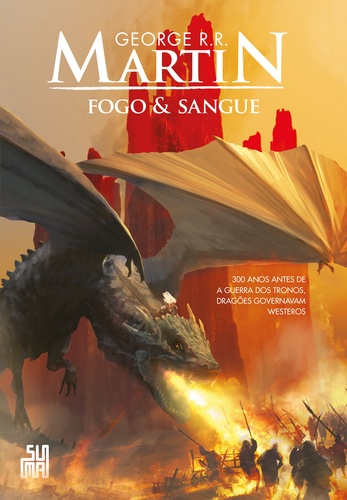
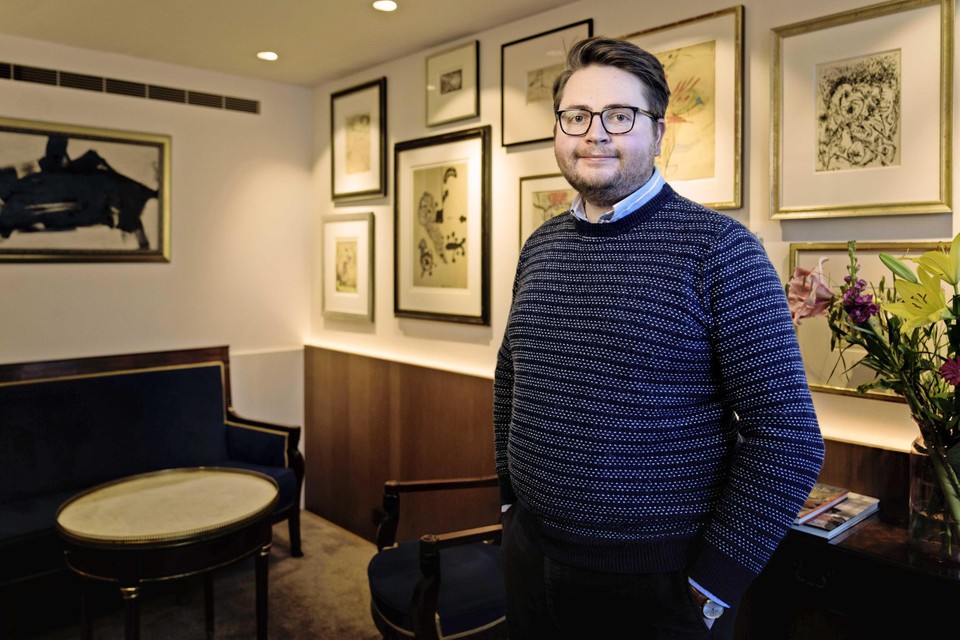
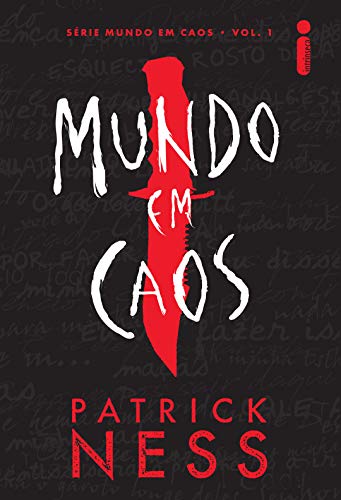
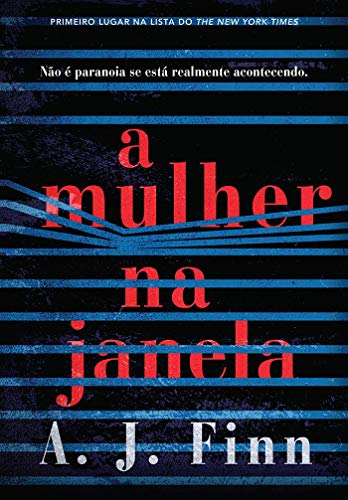
I finished reading it for the first time today! It's fantastic how the author manages to convey the anguish of doubt so well. I'm thinking of re-reading it just to look at the details, to try to find a basis for the betrayal. Bentinho seems so sure of the undue resemblance between his son and his friend that it seems there would be no doubt, but, like you, I disliked his misplaced jealousy throughout the book!
That Capitú still praises him to Ezekiel in Europe ("the purest man in the world, the most worthy of being loved") stuck in my mind as a strong argument in favor of betrayal. She would be praising him while guilty. If she felt wronged, she would probably have too much resentment to give Bentinho compliments, especially such strong ones. On the other hand, being such a strong woman, she may have chosen to praise Bentinho only for Ezequiel, so as not to spoil her son's image of his father.
I end up doubting it, but whatever. Great work.
Excellent comment! It's great to see your interpretation. As an open-ended work, I think any conclusion is possible. For me, Capitu praises Bentinho to her son precisely to create a positive image of the father who had abandoned them. She does this so as not to disappoint her son. And yet, it is Bentinho telling us this. Did it really happen or was he trying to convince us that she was guilty? Machado really was a genius! And any interpretation fits this story. As for the supposed resemblance between the son and his friend, it's very fragile. Bentinho, with his sick jealousy, also saw a resemblance between Capitu and a painting in the house of a character in the story. And he became jealous. In other words, he really was sick. Comment here after your second reading to let me know your impressions! It made me want to read it again! Cheers
An important thing to take into consideration is the question in the chapters before Escobar's death about the possible "flirtation" that Bentinho says took place between him and Sancha. The narration from the perspective of the jealous and insecure Bento leads the reader to interpret that Capitu had betrayed her husband, which I believe possibly did not happen.